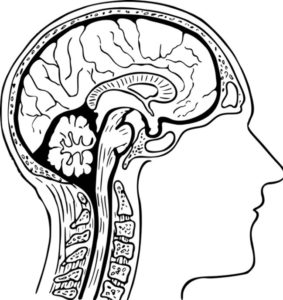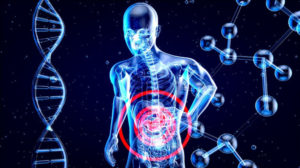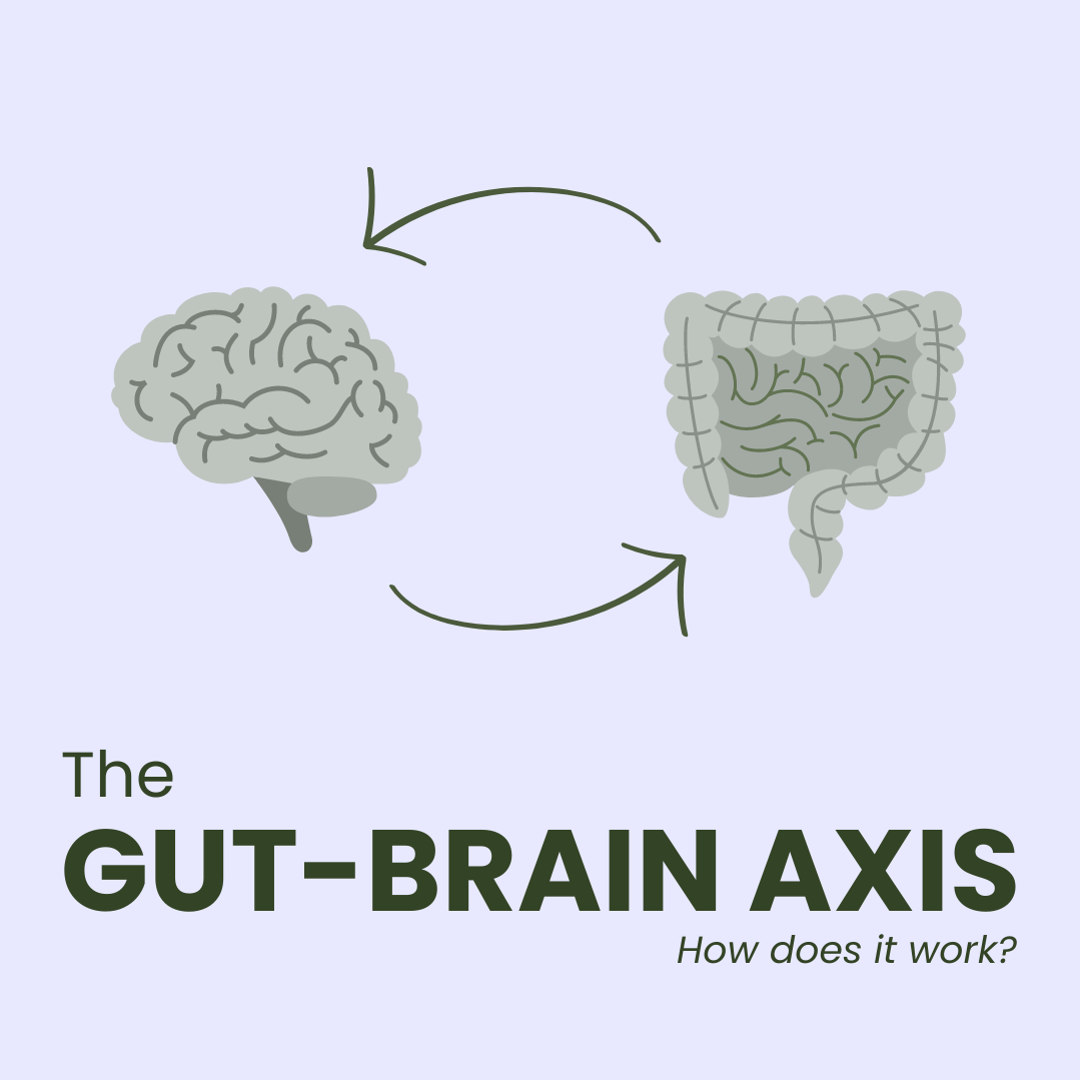Overview:
- The gut-brain connection is a two-way network where the GI (gastrointestinal) tract and central nervous system interact and connect.
- The axis includes numerous pathways like ENS (enteric nervous system), the vagus nerve, hormones, etc.
- An unhealthy gut can both physiologically and psychologically impact the brain.
Scientific research connecting the gut and brain is abundant and dates back to at least the 19th century. It demonstrates, for example, that serotonin is produced in the gut and plays a major role in regulating mood. The gut-brain connection is a two-way network between the GI (gastrointestinal) tract and the central nervous system. These are connected through neural, hormonal, and immune pathways. This article explores the detailed workings of this axis, focusing on its implications on health and well-being.
What Is the Gut-Brain Axis?
The gut-brain axis comprises numerous pathways:
The enteric nervous system (ENS): The ENS surrounds the walls of the GI tract and controls the digestive functions. It is due to the local reflex circuits, it possesses the ability to function independently.
The vagus nerve: One of 12 cranial nerves in the body, the vagus nerve manages numerous functions. They include digestion, transmission of information from your gut to the brain, and your reflexes.
Neurotransmitters: Ever wondered what might be causing your anxiety? It might be your gut. Inflammation may lead to an increase in your cortisol levels, thereby causing anxiety. It goes the other way too! Your hunger hormone, along with other hormones like serotonin and dopamine is also produced in the gut.
The Immune System: Your immune system plays a crucial role in keeping your body healthy. A poor digestive system, however, may cause your immunity to deplete or increase your stress levels.
Hormones: The way your gut interacts with the brain may impact your hormone production. A stressed digestive system may lead to irregularities in hormone production, which may lead to your cortisol levels shooting up.

How Does It Work?
The gut-brain axis works like a two-way street that carries information and connects the nervous system to the digestive system. It is also responsible for the immune function in the body.
The vagus nerve carries signals to and from the brain and digestive system. The gut produces and houses a significant amount of neurotransmitters. They include serotonin (90%), dopamine, and GABA (gamma-aminobutyric acid), which are known to influence mood, emotions, and overall mental well-being. These neurotransmitters also play a role in influencing appetite and digestion. The hunger hormone, ghrelin, for instance, gives a sense of reward and motivation.
Remember that feeling in your gut right before the big exam? Or maybe it was the knot in your stomach when your mother was about to have a parent-teacher meeting? Your gut and brain are more connected than you think! SCFAs, or short-chain fatty acids, play a crucial role in influencing brain function. So, a healthy gut microbiome ensures better brain functions.

Implications of an Unhealthy Gut on Your Brain
<Stress = disrupt gut microbiome balance = more stress>
1. Increased permeability leads to gut inflammation
2. Gut inflammation can lead to brain inflammation
3. Neuroinflammation has been associated with mood disorders like depression and bipolar disorder. It is also related to other conditions like schizophrenia and post-traumatic stress disorder
4. Imbalances in the gut disrupt the production of serotonin, GABA, and dopamine
5. Reduced neurotransmitter synthesis can lead to low mood, anxiety, depression, and even self-doubts
6. Impacts on hunger-signaling hormones produced in the gut, which leads to impact cravings, and as a result worsens mental well-being
7. According to a study, up to one-third of people with IBS (irritable bowel syndrome) experience mental health disorders like anxiety or depression
Long-Term Consequences for Overall Well-being
The disconnect between your gut and brain can cause digestive disorders. They range from mild conditions like irritable bowel syndrome to more severe ones like inflammatory bowel disease.
Dysbiosis or inflammation can lead to mental health conditions like anxiety, stress, depression, and even Parkinson’s disease.
Ghrelin is the hunger hormone; when elevated, it may result in increased chances of obesity and other metabolic diseases.
There may or may not be a direct connection between your gut health and chronic pain. It depends on various factors like inflammation and poor diet.
How to Protect Your Gut-Brain Axis?
Incorporate whole foods, such as lean proteins, healthy fats, and fiber in your diet. However, it should be well-balanced.
Add probiotic-rich foods like yogurt to your diet. They not only improve your digestion and reduce inflammation but also strengthen your immune system.

Stress can lead to dysfunction in your gut-brain connection. Practicing meditation or yoga may help lower your cortisol levels.
Engage in regular exercise depending on your fitness level, to support gut health and reduce stress. It could range from walking or yoga to strength training.
Prioritize quality sleep, as it is crucial for both gut and overall health.
Aim to drink at least three liters of water daily to stay hydrated and maintain electrolyte balance.
Avoid unnecessarily using antibiotics, as they disrupt gut microbiota.
If you have persistent gut issues or concerns, seek guidance from a healthcare professional specializing in gut health.
Conclusion:
While many research organizations are exploring the gut-brain axis, numerous aspects of this connection are yet to be fully understood or discovered. A healthy gut cultivates a healthy brain is comparatively newer, however, a much-needed aspect to look at. It becomes all the more necessary to rethink our lifestyles, the way we live, what we eat, etc. Only through interventions and modifications can we address the issue. This also gives us a chance to work on our physical health and mental health in an unconventional way.


